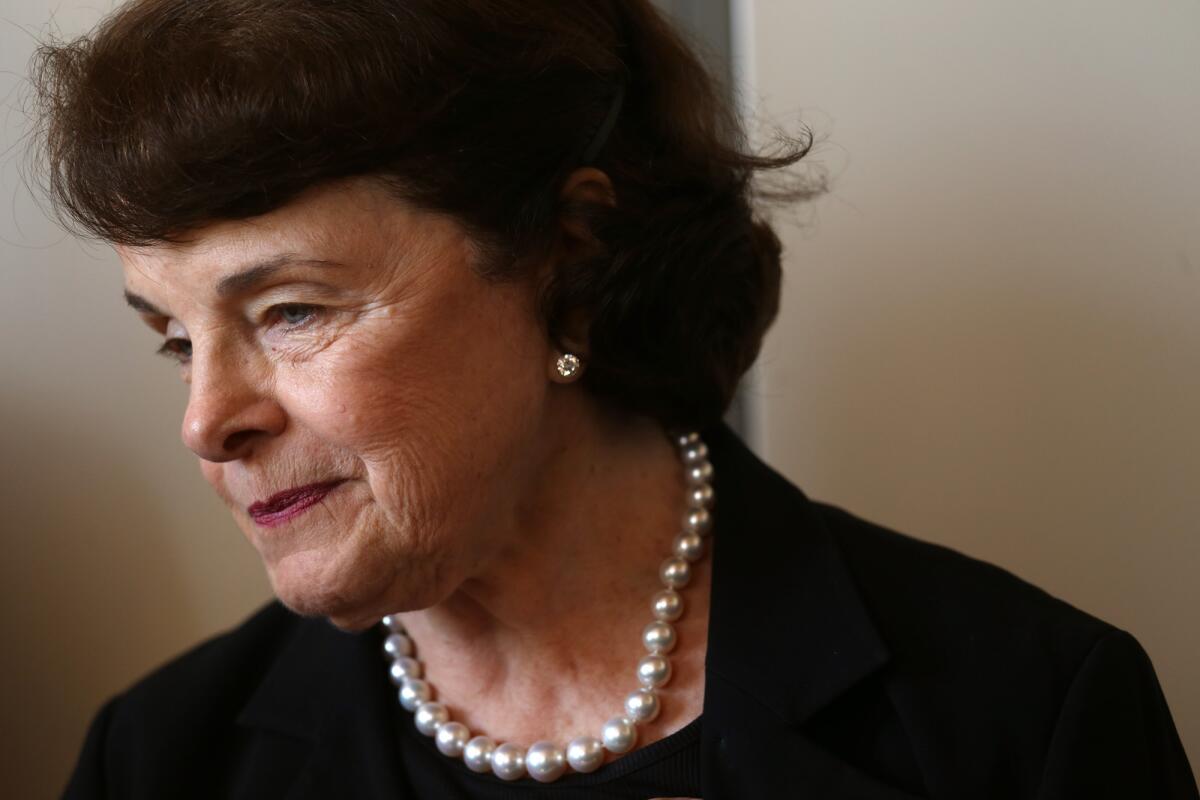Letters to the Editor: Dianne Feinstein and the ‘death grip’ on jobs that imperils younger workers

- Share via
To the editor: I’ve heard a lot of jokes in the last few years by people in their 30s and 40s, wondering when their older colleagues might die. This isn’t because they are disliked, but because they are monopolizing the finite number of positions that pay a living wage and offer job security. (“In Sen. Feinstein’s death, lessons for all of us about when to leave work behind,” column, Oct. 2)
Dark? Sure.
However, Dianne Feinstein dying as a senator after years of decline, rather than stepping down with her head held high to make room for someone else, is a prime example of the destructive attitude of some (and by no means all) older workers who believe they are entitled to hold onto power forever.
Columnist Steve Lopez did not explore the toll that the death grip on jobs takes on younger colleagues and society. There is a finite number of Senate seats — as well as tenured faculty positions, directors and CEOs. When is enough, enough?
Everyone’s career should be celebrated, but when someone hangs on too long, the risk is that all anyone will think about when that person retires is not what an amazing career they had, but just how happy we are to finally be rid of them.
Phoebe Millerwhite, Claremont
..
To the editor: The time to leave your job depends on what your job is.
For instance, Homeboy Industries founder Father Gregory Boyle can and must stay on his job because his work is anchored in love and being mindful of the goodness in people, as he says. Randall Graham, the winemaker mentioned in Lopez’s column, can stay in his job forever because he makes wine for others to enjoy.
People like Feinstein, Senate Minority Leader Mitch McConnell (R-Ky.) and President Biden should walk away from their jobs when they realize that their health is impacted due to aging. The decisions they make affect millions of people.
A good example of this is Justice Ruth Bader Ginsburg, who died shortly before the 2020 election. If she had retired during the Obama administration, we might have a more balanced U.S. Supreme Court
Vicki Rupasinghe, Ojai



